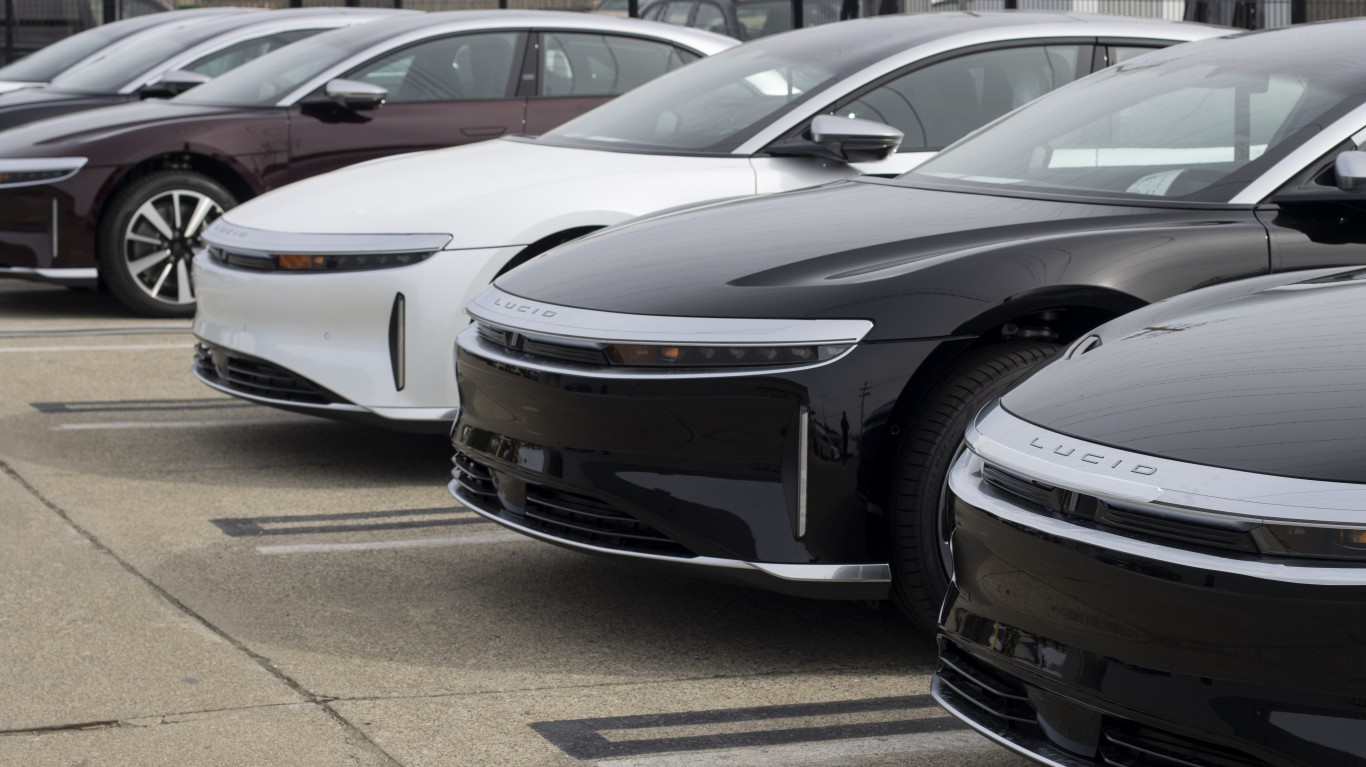
Inauguration Day will be upon us on January 20, 2025, when Donald Trump will be sworn in as the 47th President. This day will mark the former president’s return to the White House four years after departing his post amid scrutiny over the transfer of power to Joe Biden.
As was the case with Trump’s last election victory, stocks took their own victory lap post-election, with the market ending the year more than 20% higher for the second consecutive year. While the late-year bump can clearly be attributed to Trump’s win (and expectations for lower taxes and higher growth moving forward), higher bond yields that have come about as a result of these surging growth and inflation expectations have since put somewhat of a damper on this impressive rally into the start of 2025.
Thus, the question many investors have heading into Inauguration Day is how market participants in aggregate will view the coming four years. Some stocks are likely to be clear winners as a result of the Trump election victory and his proposed support (crypto and energy are two clear examples). But other companies may find themselves on the outside looking in, if Trump’s policies and current entanglements continue as they have.
Here are three companies I think could be on the latter list, and may be companies investors will want to avoid over the coming year.
Key Points About This Article:
- Donald Trump’s recent election victory spurred a market-wide rally, which has since taken a breather.
- Despite very broad bullish sentiment, specific stocks may be set up for underperformance following Inauguration Day – here are three investors may want to keep tabs on.
- If you’re looking for some stocks with huge potential, make sure to grab a free copy of our brand-new “The Next NVIDIA” report. It features a software stock we’re confident has 10X potential.
Lucid Group (LCID)

Electric vehicle maker Lucid Group (NASDAQ:LCID) is one company that’s actually performed reasonably well since the election, initially falling after posting disappointing results this past quarter, but making back some of these gains over the past month, surging more than 50% over this time frame. Thus, Lucid may be an interesting pick to have on this list, considering the direction its share price is headed.
Analysts are now forecasting the EV maker will grow its revenue by over 27% in 2025, driven by initial deliveries of its new Gravity SUV in late 2025. Supported by orders starting in November and backed by Saudi Arabia’s Public Investment Fund, Lucid is expanding production and improving efficiency, with sufficient capital projected to last through 2026.
That said, concerns around Lucid’s ability to take a dominant market share in the luxury EV market have turned many investors off. The company’s high cash burn rate and uncertainty around future production and deliveries numbers for its Gravity SUV, have investors tasked with a difficult assignment in modeling out the company’s future cash flows and its break even rate.
Even optimistic estimates have Lucid projected to lose $2.7 billion in 2025. And with the company’s profitability and operating model unproven, I think additional capital raises are likely. For me, this makes Lucid an EV stock that has more downside risk than upside potential, particularly when one considers how close Trump is to Tesla CEO Elon Musk, and what that may portend for future regulations for this sector.
Ford (F)

Sticking with the auto sector, we have Ford (NYSE:F) a leading producer of U.S.-made trucks, cars and SUVs. The company’s F-150 Lightning (pictured above) is among the best bangs for its buck in the EV sector (in my view), but hasn’t caught on as many investors had hoped. That’s partly due to the intense competition in the EV sector that’s built in recent years, with more than 150 new EV models expected in North America by 2026. Thus, despite EV sales rising 35% year-over-year, a shift in consumer demand toward hybrids and gas-powered vehicles has some investors re-thinking their investment in this particular auto company and its strategic direction.
Ford has announced plans to make its EV division profitable over the course of 2025, so we’ll have to see if this plays out. But again, many of the same headwinds that apply to Lucid apply to Ford. The company’s EV division continues to burn cash, and Ford’s overall operating margins are much slimmer than other players in this sector (most notably Tesla). So, the question is whether capital will rotate into or away from Ford stock in such an environment. I’ll take the under on that bet.
D.R. Horton (DHI)

D.R. Horton (NYSE:DHI) is among the leading U.S. home builder stocks investors piled into heading into the election. In fact, this stock was up more than 25% at one point last year, before falling off a cliff following Trump’s election victory. Over the past year, DHI stock is now down more than 6%, greatly underperforming the broader market.
I think most of this move has to do with bond yields, which started to firm up as expectations of a Trump win increased. Higher bond yields (particularly on the 10-year bond) tend to lead to higher mortgage rates, due to how these products are typically structured. Indeed, long bonds drive the majority of consumer debt, and with home purchases the largest line item on most household budgets, higher mortgage rates have meant greatly reduced demand, which homebuilders like D.R. Horton have partly offset by incentives over the past year.
The question moving forward is whether D.R. Horton’s current inventory glut can be cleared at reasonable prices, or if losses could be on the horizon as inventory becomes stale and further cuts are needed to move homes off the company’s balance sheet. This past quarter, the company saw a significant 15.3% drop in its Q1 earnings compared to the same quarter last year. This decline is indicative of broader challenges facing the homebuilding sector, including high mortgage rates and decreased buyer activity due to economic uncertainty.
I think investors banking on higher long bond yields (related to the expected Trump deficit) may want to avoid interest rate sensitive names like DHI stock, at least for 2025.
Thank you for reading! Have some feedback for us?
Contact the 24/7 Wall St. editorial team.





